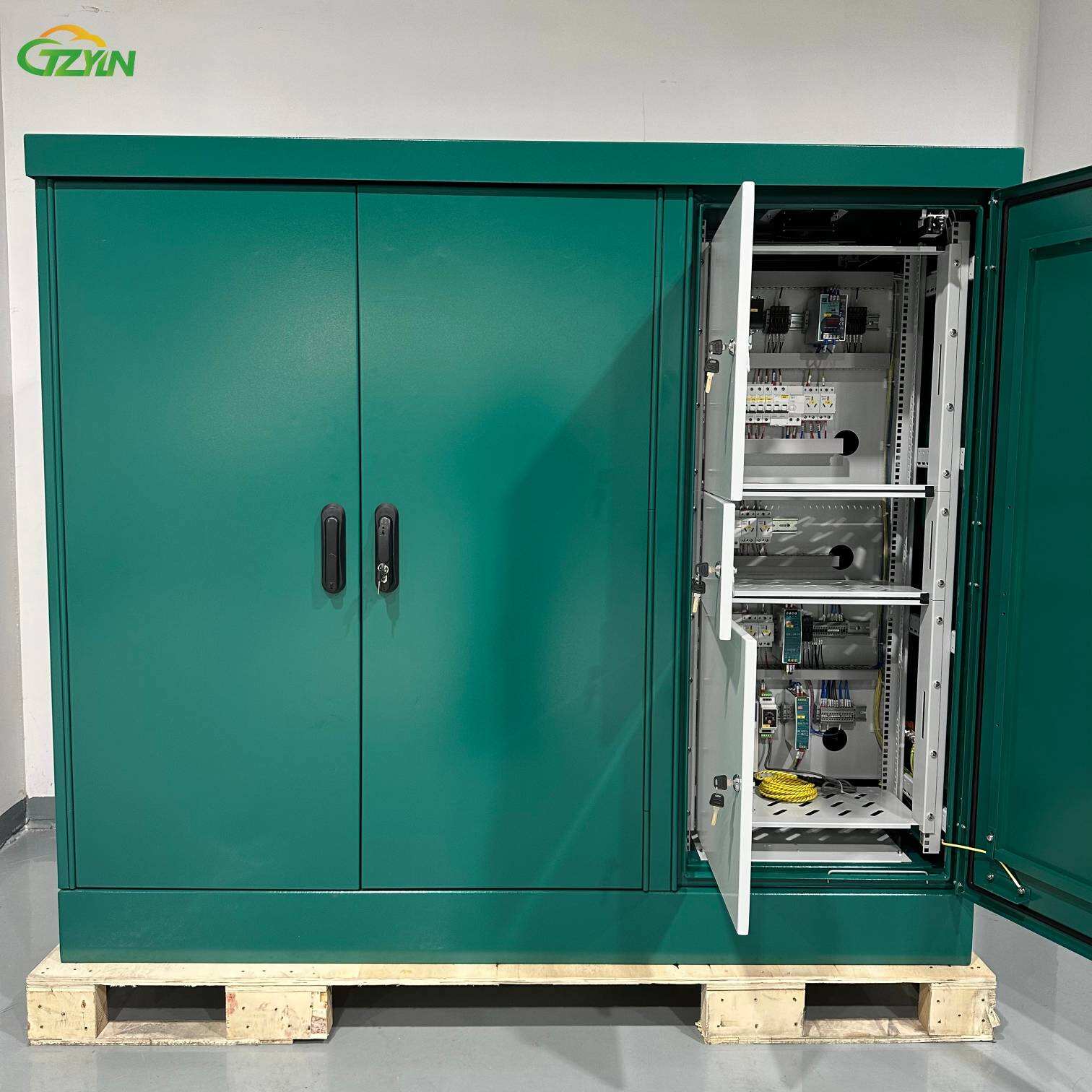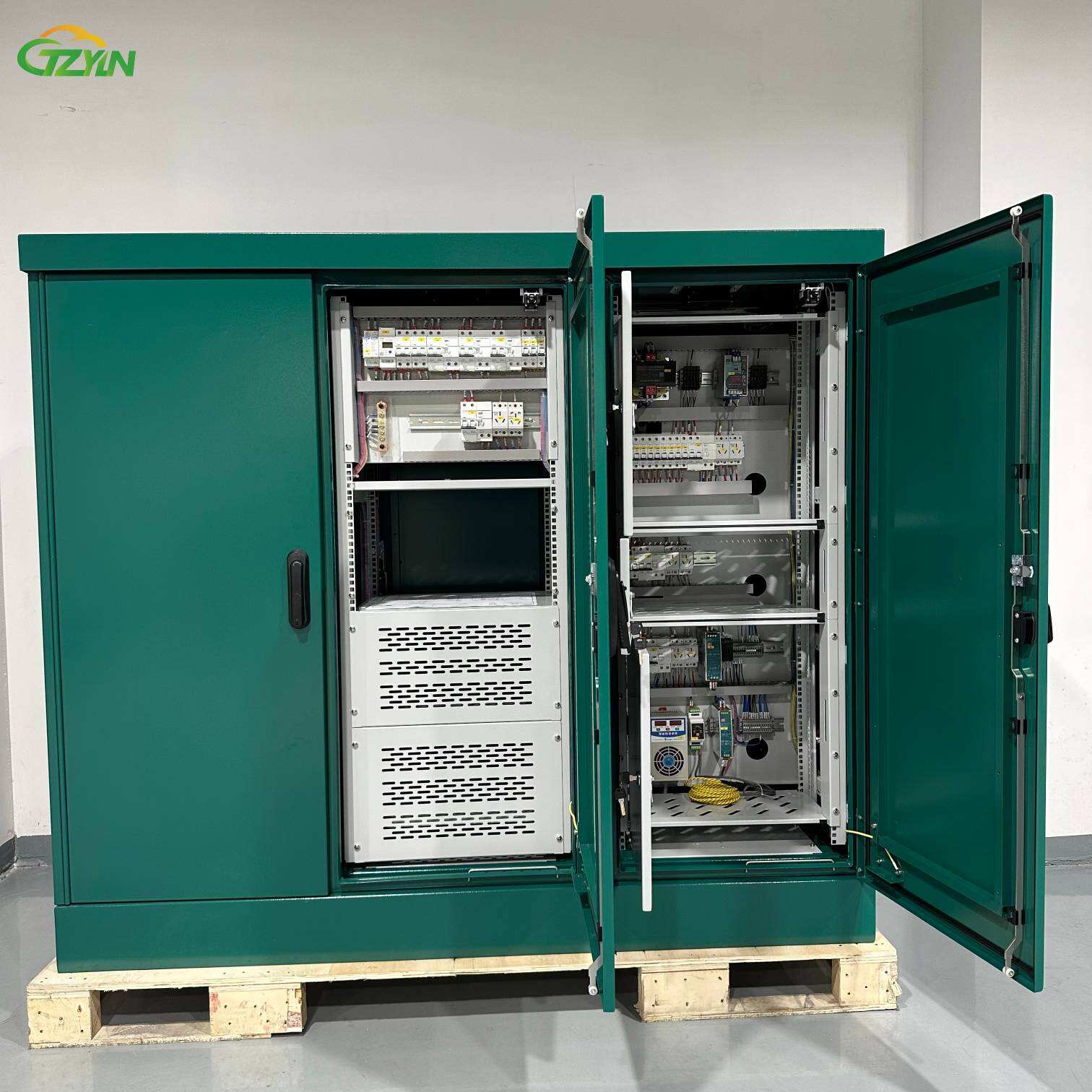102, 1st Floor, Building 3, Juze Center, No. 105 Gaoxin Avenue, Shangjie Town, Minhou County, Fujian Province +86 177 0691 9203 [email protected]
Traditional traffic light control systems often rely on manual operation, which is not only inefficient
but also difficult to adapt to complex and changeable traffic conditions. However,
with the continuous advancement of science and technology, automation technology
has gradually penetrated into various fields, and the control of traffic lights is no exception.
Recently, we successfully developed and launched an innovative traffic light automation control cabinet,
bringing a new solution to urban traffic management.
Concept
The traffic light automation control cabinet is based on advanced automation technology
and intelligent algorithms to upgrade the traditional traffic light control method to
an intelligent and automated system. It integrates a variety of sensors, controllers and
communication modules to sense traffic flow, vehicle speed and pedestrian crossing
information in real time, and automatically adjusts the duration and phase of traffic lights
according to preset rules and algorithms to achieve optimized control of traffic signals
and improve road traffic efficiency and safety.

Function
Intelligent control of traffic signals: Automatically adjust the duration and phase of traffic lights
according to real-time traffic data, reduce vehicle waiting time, and alleviate traffic congestion.
Real-time monitoring of equipment status: Real-time monitoring of electrical equipment inside
the control cabinet and the operating status of external traffic lights, timely detection of faults
and alarms, and ensuring stable operation of the system.
Remote control and management: Through network connection, traffic management personnel
can remotely monitor and operate the traffic light automation control cabinet in the control center
to achieve centralized management and dispatch of traffic signals.
Data collection and analysis: Collect data such as traffic flow, vehicle speed, queue length, etc.,
provide a scientific basis for traffic planning and management, and help the intelligent
development of urban transportation.
Support multiple traffic modes: The control strategy of traffic lights can be flexibly configured to
adapt to traffic needs in different time periods and sections, such as morning peak, evening peak,
and flat peak period.

Advantages
High efficiency and energy saving: Use advanced energy-saving technology and equipment to
reduce energy consumption and reduce operating costs.
Stable and reliable: Select high-quality electrical components and materials, and undergo strict quality
inspection and testing to ensure stable operation of the system under various harsh environmental conditions.
Convenient maintenance: Modular design, convenient maintenance and replacement of components;
intelligent fault diagnosis function, can quickly locate problems and improve maintenance efficiency.
Strong compatibility: supports seamless connection with existing traffic management systems and
other intelligent traffic equipment to achieve data sharing and collaborative work.
Widely adaptable: It is suitable for traffic light control needs in different scenarios such as urban roads,
highways, bridges, tunnels, etc., and has strong versatility and adaptability.
Application scenarios
Urban road intersections: At intersections and T-junctions with large traffic volume and complex traffic,
traffic lights can be automatically controlled to effectively guide traffic and reduce congestion.
Highway entrances and exits: Traffic light control is performed on toll stations, entrance and exit ramps, etc.
on highways to improve vehicle traffic efficiency and relieve traffic pressure.
Bridges and tunnels: Ensure traffic safety and smooth flow on special sections such as bridges and tunnels,
and automatically adjust traffic lights according to traffic flow to prevent vehicle backlogs.
Intelligent transportation system: As an important part of the intelligent transportation system,
it works in collaboration with electronic police, traffic monitoring cameras, intelligent
public transportation systems, etc. to build a comprehensive traffic management network.